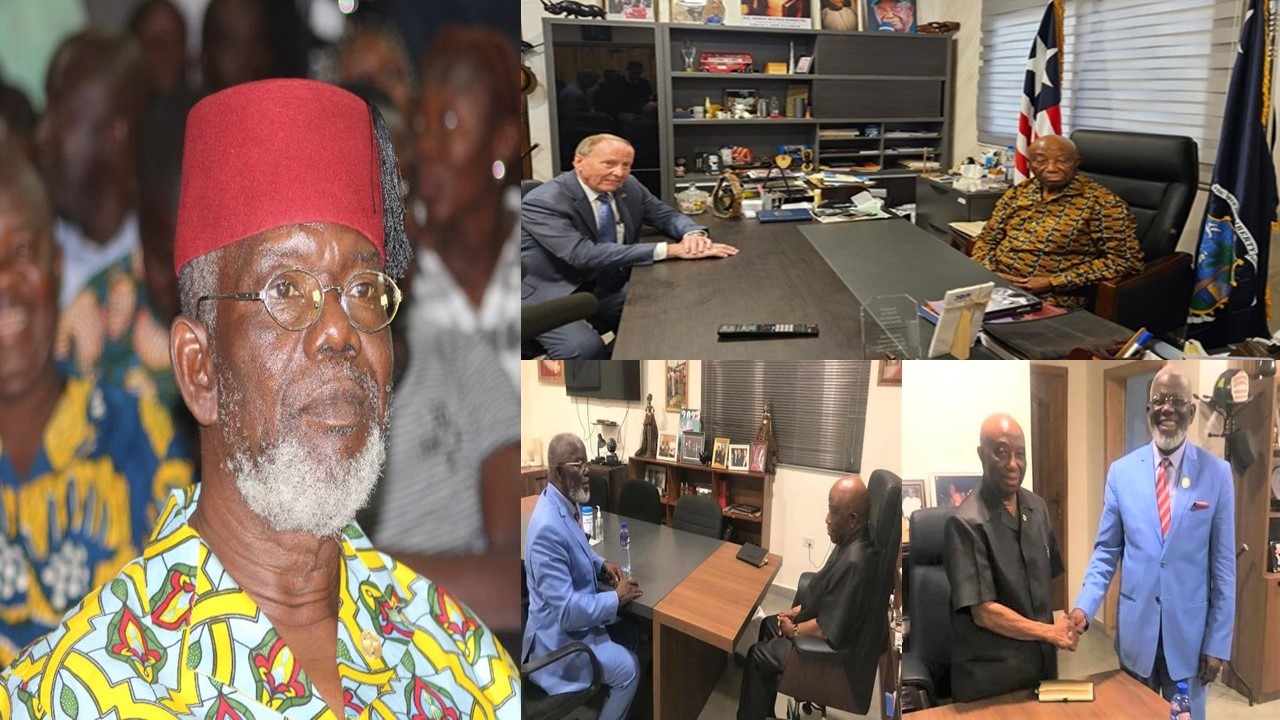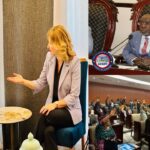In a recent live interview with the Truth Breakfast Show team on Truth 96.1 FM, Nimba County Senator Prince Y. Johnson, often referred to as ‘Nimba 1’, made startling allegations against Liberian President Joseph Nyuma Boakai. The senator claimed that the president had been unresponsive to his calls following a reported meeting between Boakai and war advocate Allen White. Furthermore, Johnson alleged that Boakai had accepted a staggering $300 million to endorse a resolution for the establishment of a War Crimes Court in Liberia.
The accusations by Senator Johnson have sent shockwaves across Liberia, reigniting debates about accountability, impunity, and the country’s post-war reconciliation process. Johnson’s assertion that former generals and combatants are holding clandestine meetings adds another layer of complexity to the already tense political atmosphere.
The backdrop of Johnson’s claims intersects with previous legislative efforts to address impunity and ensure justice for victims of war crimes. In 2022, Representative Richard Nagbe Koon proposed a bill aimed at revoking the president’s authority to grant amnesty to individuals involved in war and economic crimes committed during Liberia’s civil war. Koon argued that the existing law, which had shielded perpetrators from accountability for nearly two decades, perpetuated a culture of impunity detrimental to peace and social justice.
However, Johnson vehemently opposed Koon’s bill, insisting that the law granting amnesty had already been repealed. He criticized President Boakai for allegedly committing to the establishment of a War Crimes Court despite this supposed repeal. Johnson’s assertion underscores the deep-seated divisions within Liberian politics, with conflicting interpretations of legal frameworks and reconciliation processes.
The senator’s remarks also raise concerns about the integrity of Liberia’s leadership and the potential misuse of power for personal or political gain. Accusations of bribery and collusion undermine public trust in the government’s commitment to upholding the rule of law and fostering genuine reconciliation.
In response to the allegations, President Boakai’s administration has yet to issue a formal statement. The silence from the presidency has only fueled speculation and heightened tensions, exacerbating the already fragile political climate.
As Liberia grapples with these troubling developments, it is imperative for political leaders to prioritize transparency, accountability, and national unity. The allegations made by Senator Johnson underscore the urgent need for a comprehensive and impartial investigation into the alleged misconduct. Additionally, efforts to establish mechanisms for transitional justice, including a War Crimes Court, must be pursued in a transparent and inclusive manner, with the full participation of all stakeholders.
Ultimately, the future of Liberia hinges on its ability to address the legacies of its past, confront impunity, and build a society founded on the principles of justice, reconciliation, and respect for human rights. The allegations made by Senator Johnson serve as a stark reminder of the challenges that lie ahead and the importance of collective action in overcoming them.




